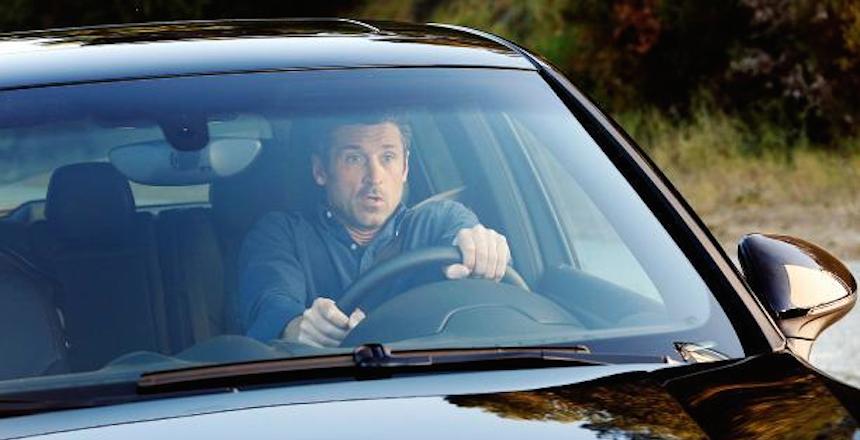SPOILER ALERT: If you haven’t watched the April 23 episode of “Grey’s Anatomy” — and, let’s be honest, have stayed off Twitter since then — and don’t want to know what happened, don’t read on.
“Grey’s Anatomy,” to quote Chris Rock’s famous burn on the Spice Girls, is like heroin — somebody is doing it (or watching it!) but no one will admit to it.
As an off-and-on fan of the show during its 11 seasons, I’ve watched plenty of heartbreaking storylines and said goodbye to several absorbing characters. But last night’s death of neurosurgeon Dr. Derek Shepherd, a.k.a “McDreamy,” a.k.a. the male lead and conscience of the entire series, felt oddly flat. Considering what an important cast member he was and how his relationship with his wife Meredith Grey (the title character) formed the backbone of the series, his death should have hit me a lot harder than it did.
Related
But because “Grey’s” has killed off so many other characters, the shock value is now all but zero. In fact, the show has given me a major case of death fatigue.
Throughout its impressive run, “Grey’s” has killed off more than its fair share of main characters: George O’Malley was struck by a bus (though he was really a casualty of the great Katherine Heigl/Isaiah Washington backstage feud). Then there was Meredith’s sister, Dr. Lexie Grey, and Derek’s best friend, Dr. Mark Sloan, (both in a plane crash). And it’s killed off plenty of secondary characters, Izzie’s fiancé Denny Duquette (after a heart transplant), surgical resident Charles Percy (in a shooting inside the hospital), both of Meredith’s parents.
And there have been plenty of near-death experiences to boot.
Derek’s death is most similar to that of George, who was killed while rescuing a woman from being hit by the bus — only to be mortally injured himself. Derek was also given this hero’s farewell, amplified: After witnessing a car accident, he saved the lives of all four people involved, only to be hit by an incoming truck as he prepared to leave the scene of the accident.
Even by Grey’s standards, it was melodramatic. But there were so many anvil-sized warning signs in the past few episodes that it became not a question of whether Derek would die, but how. The past few weeks, he’d been written as a saint, saying all the right things to his wife and posing adorably with his two kids. He saved one crash victim by wrapping her injured stomach in plastic and then nobly tucked all four of them into an ambulance. And when the doctors had to break the news to Meredith that her brain surgeon husband was brain dead, they fell all over themselves to talk about what an “honor” it had been to work on him in surgery since he was such an inspiring, gifted physician himself.
When George died, I cried through half a box of tissues. But I spent most of last night’s episode of “Grey’s” checking the clock. Part of my weariness was knowing what the episode’s outcome was going to be and dreading the moment I had to actually see it.
But the rest of my antsiness came from being tired of yet another original character being killed off of “Grey’s” in a manipulative, unsatisfying way. Meredith may be the show’s star and namesake, but she is constantly dealt the worst hands — her dog, mother, father, stepmother, two half-sisters, and now her husband have all died within the past decade.
Meredith (or, as some forum posters call her, MereDEATH) can’t just have a relative or spouse who takes a job somewhere else or goes to grad school. They always have to die in a particularly brutal and tragic fashion, preferably while she is watching.
The fundamental problem with “Grey’s Anatomy” is that it came of age in the social media era, and creator Shonda Rhimes has employed big, shocking plot twists — to great effect on social. (Last week, the #WhereIsDerek hashtag went viral.)
A show that started out being about relationships — couples, friends, coworkers, and families — became a primetime soap opera where each catastrophe was more over the top than the last. Fires, ferry crashes, an electrocution, a guy with a bomb inside his body. At first, character deaths were shocking and helped move storylines along. Now, they feel like stunts for ratings and tweets.
Maybe it’ll keep working, but based on the online fallout since last night’s episode, a lot of people won’t be watching.
Lilit Marcus is a New York City-based writer and tea addict. Her first book, “Save The Assistants,” was published by Hyperion. She is a contributing digital editor at CondéNast Traveler, and has also written for the Wall Street Journal, Cosmopolitan, The Guardian, and Fast Company. Her previous Modern Loss essay, “Grandmotherly Advice, Courtesy of Netflix,” can be found here. Follow her on Twitter @lilitmarcus.












